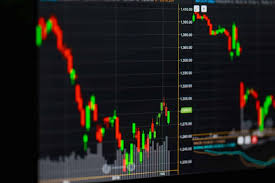The Ultimate Guide to Beginner Forex Trading 1755975079
Discover the Benefits of Free Forex Trading Simulators 1796763141
10/11/20251xBet Online A Comprehensive Guide to Betting and Gaming
10/11/2025
The Ultimate Guide to Beginner Forex Trading
Forex trading, also known as foreign exchange trading, is the act of buying and selling currencies in the foreign exchange market. The forex market is the largest and most liquid financial market in the world, with a daily trading volume exceeding $6 trillion. For beginners, entering this dynamic market can seem daunting, but understanding the key concepts and strategies can ease the transition. In this guide, we will explore the fundamentals of forex trading, including terminology, strategies, and useful resources, such as beginner forex trading Trading Brokers in Vietnam.
Understanding Forex Trading Basics
At its core, forex trading involves pairs of currencies. When you trade forex, you buy one currency and sell another simultaneously. Currency pairs are divided into three categories: major, minor, and exotic pairs. Major pairs include the most traded currencies, such as the Euro (EUR), US Dollar (USD), and Japanese Yen (JPY). Minor pairs involve less traded currencies, and exotic pairs include a major currency paired with a currency from a developing economy.
Key Terminology in Forex Trading
To navigate forex trading effectively, you must familiarize yourself with some key terminology:
- Pip: The smallest price move in a currency pair, typically the fourth decimal place (0.0001) for most pairs.
- Spread: The difference between the bid and ask prices of a currency pair. It represents the broker’s profit.
- Leverage: Allows traders to control a larger position with a smaller amount of capital, amplifying potential gains but also increasing risk.
- Margin: The amount of capital required to open a leveraged position.
- Lot: A standard unit size in trading. A standard lot is 100,000 units of the base currency.
How to Start Trading Forex
Here are some steps to help you get started in forex trading:
- Educate Yourself: Learn about forex trading through books, online courses, and tutorials. Understanding the basics will help you make informed decisions.
- Choose a Reliable Broker: Select a trading platform and broker that fits your needs. Look for regulations, trading tools, and customer support.
- Create a Trading Plan: Develop a plan outlining your trading goals, risk tolerance, and strategies. A well-defined plan is crucial for consistent trading.
- Practice with a Demo Account: Most brokers offer demo accounts where you can practice trading without risking real money. Use this opportunity to refine your strategies.
- Start Trading with Real Money: Once you feel comfortable, start trading with a small amount of real money. Keep emotions in check and stick to your trading plan.

Common Forex Trading Strategies
There are various trading strategies beginners can use. Here are a few popular ones:
- Scalping: A short-term trading strategy that involves making quick trades to profit from small price changes.
- Day Trading: Traders open and close positions within the same day, aiming to capitalize on intraday price movements.
- <strongSwing Trading: A medium-term strategy where traders hold positions for several days or weeks, focusing on capturing larger price movements.
- Position Trading: A long-term strategy where traders hold positions for months or even years, driven by fundamental analysis.
Risk Management in Forex Trading
Managing risk is a crucial aspect of trading. Here are some essential risk management techniques:
- Use Stop Loss Orders: A stop loss order automatically closes a position at a predetermined price to limit losses.
- Set Realistic Profit Targets: Define profit targets for each trade to lock in profits and avoid emotions affecting your decisions.
- Diversify Your Portfolio: Don’t put all your capital into a single trade. Diversify across different currency pairs to spread risk.
- Never Risk More Than You Can Afford to Lose: Trade with money you can afford to lose to avoid financial stress.
Resources for Beginner Forex Traders
Here are some valuable resources for beginners:
- Forex Books: Look for books specifically geared toward beginners that outline trading strategies, psychology, and analysis.
- Online Courses: Websites like Udemy, Coursera, and Khan Academy offer courses in forex trading.
- Trading Forums: Join online trading communities like BabyPips or Forex Factory for insights and support from fellow traders.
- Market Analysis Tools: Utilize trading platforms that provide technical analysis tools, economic calendars, and real-time data.
Conclusion
Forex trading for beginners can be an exciting and profitable venture if approached with knowledge and discipline. By understanding the basics, familiarizing yourself with strategies, and practicing risk management, you can navigate this complex market with confidence. As you embark on your trading journey, remember that continuous learning and adaptation are key to long-term success in forex trading.
